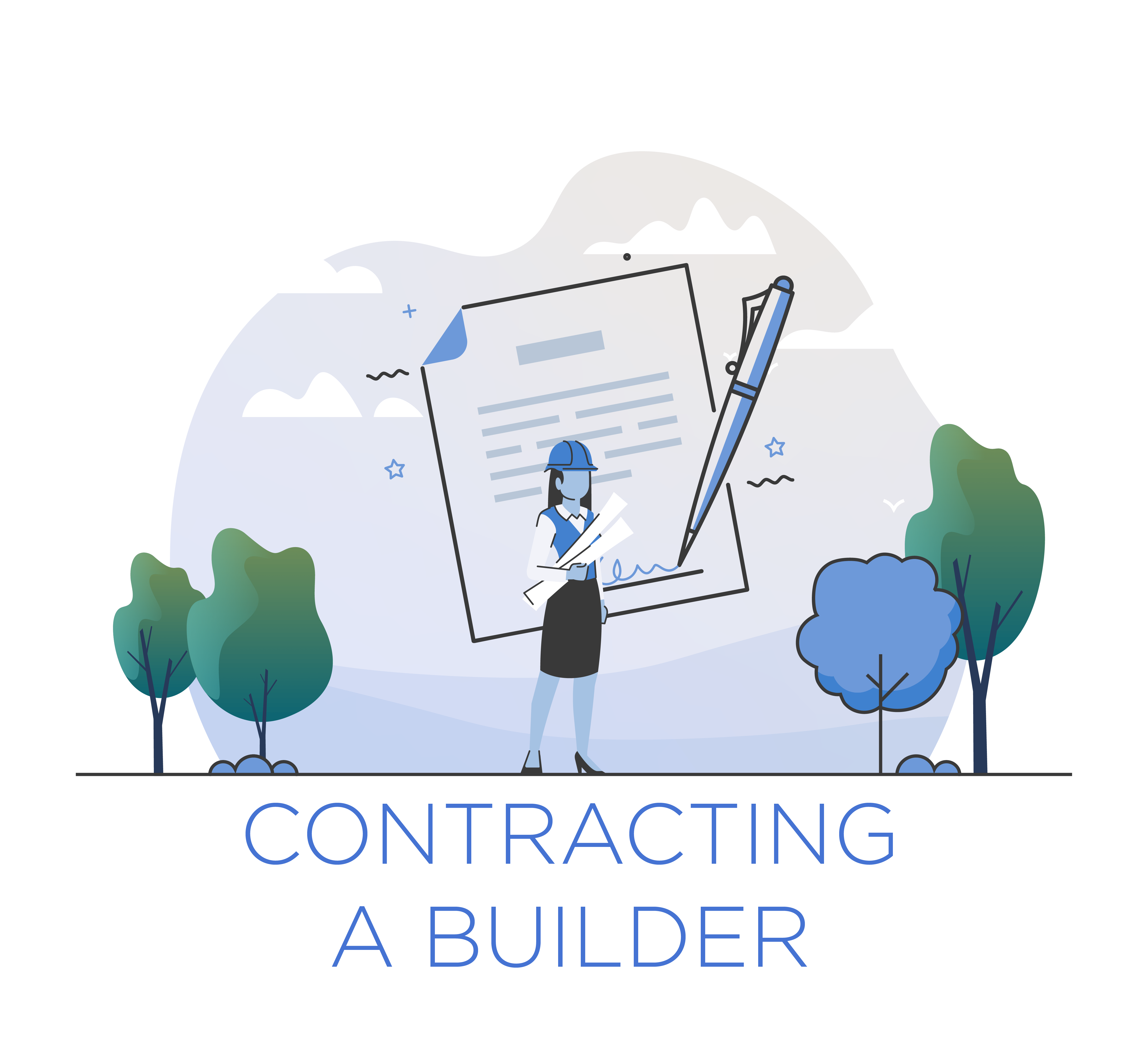Navigating a New Home Build – Part 3: Contracting a Builder

Once you’ve chosen your builder, review their contract in depth and investigate before you sign it:
- Many builders’ contracts are non-negotiable, and you may not have much leeway to modify them. They tend to be lengthy, but you should read them and understand what you’re committing to.
- Make sure the contract clearly identifies allocations for included items such as flooring and landscaping and identifies standard features versus optional upgrades.
- Gulick Group, for example, tries to include what would be considered “must haves” for a home and to make it clear what constitutes an upgrade.
- If you have a budget for upgrades post-contract, consider adding that as an allowance to the contract so it can be covered by your financing.
- Be aware that the deposit for the home may have to increase if the upgrades are significant or unusual.
- Understand the process and deadlines to make finish selections.
- How are changes to the home handled in the contract? What happens if the builder experiences supply delays, material changes, or price increases? While Gulick Group doesn’t do this, many building contracts allow the builder to increase the home’s price if material costs increase.
- Contracts are often written to favor the builder, particularly when the builder owns the property. The builder assumes greater risk by building a home to your specifications on their land. If you’re having a home built on your own lot, the builder has less risk, and the contract should be more balanced.
- Read the warranty carefully. If anything isn’t clear, ask questions; you need to understand what is and isn’t covered.
- You have the right to pick your own settlement attorney, but if you use a different attorney than the builder, it many cause some logistical challenges at closing.
- If anything isn’t clear, ask questions. You may wish to have an attorney review the contract and provide explanations. Please note that we are NOT attorneys (and therefore not qualified to give legal advice). If you have legal questions about a contract, it is always advisable to contact an attorney.
About Gulick Group, Inc.: Established in 1987, Reston-based Gulick Group has developed communities throughout Fairfax and Loudoun Counties, including One Cameron Place and Newport Shores in Reston, The Reserve in McLean, Autumn Wood, Grovemont, and the three Riverbend Communities in Great Falls, Red Cedar West in Leesburg, and Wild Meadow in Ashburn.
